News
Thai government stakes its future on casino complex amid pressure
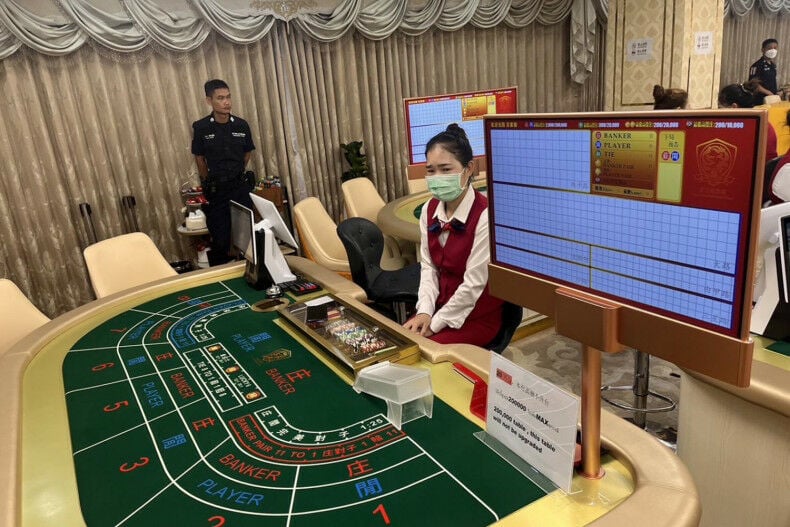
The Thai government faces mounting pressure to reevaluate the particulars of its proposed casino and entertainment complex, designed to spur economic development. Senator Sangsit Piriyarangsan, who has been conducting inquiries into casino legalization, contends that the current blueprint necessitates revisions.
Sangsit contends that the bidding process for the casino complex project should not exclusively favor Thai companies.
By allowing foreign entities to participate, concerns regarding favoritism, corruption, and opacity could be alleviated. He argues that this inclusive approach would foster public trust in the project, ensuring it serves the nation’s interests.
Moreover, Sangsit asserts that the requirement for the proposed casino complex to be situated within 100 kilometers of an airport could impede potential investments.
He proposes more flexible criteria and suggests emulating the Singapore model, where casino complexes cater to both meetings, incentives, conferences, and exhibitions (MICE) groups and gamblers.
Additionally, he calls for the implementation of an efficient transportation system, such as an electric train service, to connect the venue to the airport.
To mitigate the potential adverse effects of gambling, Sangsit recommends implementing measures such as a 2,000 baht entrance fee per person and imposing a minimum age restriction.
He also advocates for a system whereby families can report problem gamblers to a gambling control committee if their gambling behavior is causing significant economic harm.
In terms of revenue allocation, Sangsit insists that the law should clearly outline the portion of proceeds from the casino complex designated for public welfare.
He suggests that these funds could be directed towards elderly care, public health initiatives, and establishing a fund to address youth gambling and provide treatment for gambling addiction.
Furthermore, Sangsit urges the government to streamline the bidding process and expedite the completion timeline for the winning private sector bidder to one-to-two years.
This would help mitigate potential delays stemming from rapidly evolving market conditions and demand fluctuations.
Integrated Entertainment
Deputy Finance Minister Julapun Amornvivat, chair of a special House committee studying the potential of an integrated entertainment complex and casino, highlighted that such a venture would offer a blend of diverse entertainment options, introducing a novel tourism format to enhance state revenue while tackling illegal gambling concerns.
According to Statista, integrated entertainment complexes worldwide amassed a value of US$1.5 trillion in 2022, with projections indicating growth to US$2.2 trillion by 2028.
Countries such as Macau, the US, Singapore, South Korea, the Philippines, Vietnam, and Indonesia have notably benefited from this sector, generating substantial income.
Studies reveal that integrated entertainment complexes have significantly impacted Singapore’s economy, attracting over 300 billion baht in foreign investment, boosting tourism revenue by 47%, and creating more than 20,000 high-income jobs.
A study presented to Parliament on March 28 indicated that legalizing integrated entertainment complexes and casinos led to a decrease in gambling addiction and illegal gambling. The study also highlighted that casino revenues comprise three main components: casino tax, licensing fees, and a casino entry fee.
The Thai House study suggested that legalizing casinos within large entertainment complexes could boost tourism revenue by approximately US$12 billion, potentially increasing the country’s GDP growth by 1.16 percentage points.
News
Pickup truck crash in Lampang kills one amid heavy rain
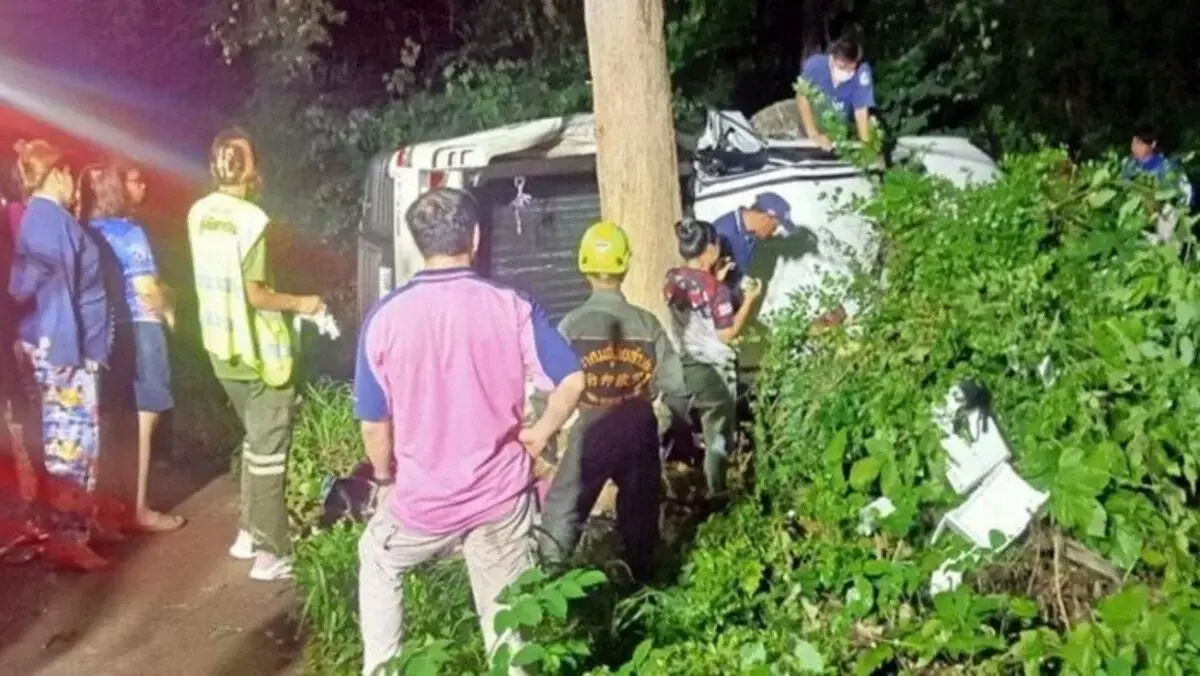
Due to heavy rain, a pickup truck returning from Chiang Mai skidded off the road and crashed into a tree in Thoen, Lampang.
Despite the efforts of rescue teams, a 50-year-old woman tragically lost her life.
The accident was reported to Thoen Police Station in Lampang at 6:50 PM yesterday, July 30.
The incident occurred on Phahonyothin Road, between kilometer markers 632 and 633, near the Mae Thot intersection in Thoen district.
Rescue units from Mae Thot, Lampang, Thoen, and Ombun Thoen were promptly dispatched to the scene.
Related News: Police arrest violent
Upon arrival, responders discovered a white, four-door Mazda pickup truck with a Surin registration overturned and severely damaged from colliding with a large roadside tree. Inside the vehicle, four injured individuals were trapped.
Rescue teams quickly extracted three injured and provided initial medical assistance before transferring them to a hospital.
However, a 50-year-old woman from the Na Pang subdistrict, Phu Phiang district, Nan province, who was seated in the back, sustained critical injuries and succumbed to them before she could be freed from the wreckage.
Initial investigations revealed that the group had traveled from Chiang Mai to Nakhon Pathom.
The accident occurred on a curved section of the road, worsened by wet and slippery conditions from the rain.
The vehicle lost control and crashed violently into the tree.
After extracting and treating the injured, the deceased’s body was transported to the hospital for further examination.
Police have launched a formal investigation into the accident. They are gathering evidence and statements from the injured to understand the exact circumstances leading to the crash.
The results of the investigation will guide necessary legal proceedings, reported KhaoSod.
Authorities advised.
“We urge all drivers to exercise extreme caution, especially in bad weather and on curved roads.”
News
Police arrest violent debt collector after tip-off in Bangkok

Police apprehended a member of a violent debt collection gang linked to the assault of a 73-year-old woman following a tip-off. He was caught while attempting to flee from a motel on the outskirts of Bangkok.
High-ranking police officials, including Thiti Sangsawang, Noppasin Poolsawat, and Thiradech Thamsuthee, along with a team of investigators, successfully arrested Kritchit, also known as 33-year-old Chit Thasala, from Nakhon Si Thammarat Province today, July 30.
He is one of the three members of the gang responsible for violent debt collection activities, including physical assault, intimidation, kicking doors, cutting off electricity, and locking debtors inside their homes.
The Min Buri Criminal Court issued an arrest warrant for Kritchit on July 23 for operating an unauthorized personal loan business, charging excessive interest, and threatening debt collection practices.
Related News: Thai vendor denies
He was apprehended at a hotel in the Saphan Sung district as he tried to escape in his car. During interrogation, Kritchit denied all charges, stating he had only completed Grade 9 and initially worked as a fruit farmer in Phuket’s Thalang District. In 2022, he sold his orchard land and used the proceeds to start a money-lending business.
He collaborated with two other suspects, Ta and Khet, who are still at large, to lend money in the Min Buri, Ram Inthra, Rom Klao, and On Nut areas.
They charged an interest rate of 20% daily, with borrowers typically taking out 5,000 to 6,000 baht loans. Kritchit claimed that Ta and Khet were responsible for using violence against the debtors on the day of the incident.
“I only worked with Ta and Khet to lend money. They were the ones who used violence.”
However, police remain skeptical of his testimony. Investigations revealed that Kritchit is romantically involved with the younger sister of Kenwit, another gang member who was previously arrested for assaulting the older woman.
Kenwit’s gang had attacked the 73-year-old in the Chokchai area. After receiving a tip-off, Kritchit fled to the hotel, where he was captured.
Police have transferred Kritchit to the Min Buri Police Station for further legal proceedings. His capture is a significant breakthrough in the ongoing crackdown against violent debt collection gangs operating in Bangkok and nearby areas.
As one of the lead investigators remarked, we are committed to cracking down on these illegal activities and ensuring the safety of our citizens.
Kritchit’s case will proceed through the legal system, and police are continuing their search for the remaining gang members, Ta and Khet. The investigation remains ongoing, with police hopeful that further arrests will follow, dismantling the entire network of violent debt collectors, reported Khaosod.
News
Thai vendor denies assault, cites stress from poor sales
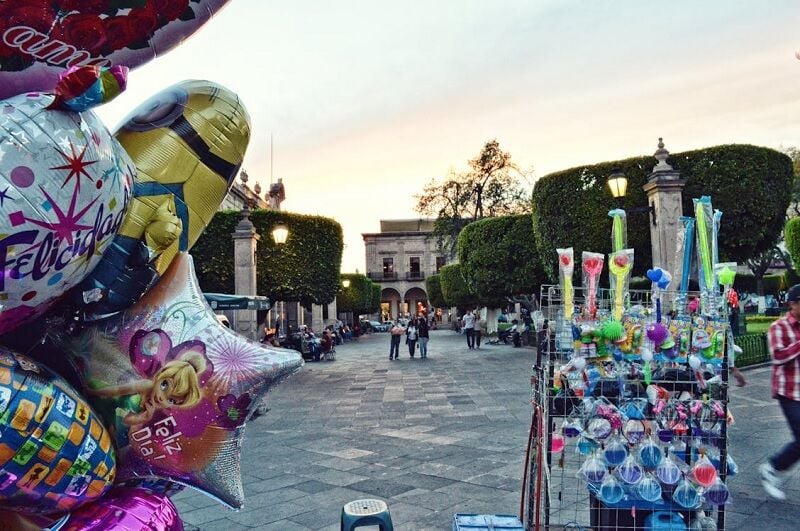
A Thai grilled squid vendor turned himself in and expressed remorse after allegedly striking a Pattaya city official who requested him to move his sidecar motorcycle from obstructing traffic.
The vendor, however, denied the physical assault, citing stress from poor sales as the trigger for the incident. He claimed their encounter was limited to a verbal disagreement and a shirt tug.
Pattaya police yesterday, July 29, invited Siwachett Nakham, a 42-year-old former temporary employee at the government’s Public Works Department and a current grilled squid vendor, to meet with an investigator to address the dispute.
Related News: Legend enjoys spring
The altercation involved Siwachett and a 40-year-old Pattaya city official, Udon Woranam, who had requested Siwachett to move his vehicle, blocking traffic near Jomtien Beach in front of the Dongtan Police Box. Siwachett was accused of punching Udon after the latter politely asked him to move his motorcycle. Siwachett, who acknowledged being the person in the video, denied the physical assault, maintaining that he only had a verbal confrontation with Udon and tugged his shirt.
He cited stress from poor sales and financial burdens as the reasons behind his behavior.
“I did not intend to harm Mr Udon because I had worked with the Public Works Department before, so I knew hitting an official was a bad idea.”
Siwachett apologized for his actions, and Udon said he did not wish to pursue the matter further. Despite this, Pattaya City insisted on taking legal action against the vendor to set a precedent and deter similar future incidents.
Selling goods
Additionally, Udon advised other vendors to remain calm, control their emotions, and adhere to the designated areas for selling their goods according to the law.
Following resolving this dispute, traffic police officers from Pattaya Police Station raided vendors illegally selling goods on public sidewalks and roads around Pattaya. This operation was in response to tourists’ complaints about obstructions and hazards caused by unorganized vendors.
When authorities arrived near Pattaya Police Station’s Dong Tan substation, they encountered heavy traffic congestion caused by street vendors parking on the road. Some vendors attempted to evade arrest by speeding through the officers’ blockade, putting the safety of officers and nearby individuals at risk.
Thai police managed to apprehend 12 vendors, who will now face legal proceedings for violating traffic and cleanliness laws. The police also announced plans to increase daily inspections in collaboration with municipal officials to restore public spaces for residents and tourists, reported the Pattaya News.
-

 News1 year ago
News1 year agoMICE industry must prioritise people management to sustain growth
-

 Entertainment2 years ago
Entertainment2 years agoDark history to exotic delights: Cambodia and Thailand tourist strategy
-

 Entertainment2 years ago
Entertainment2 years agoJohn Legend enjoys spring break in Phuket
-

 Entertainment2 years ago
Entertainment2 years agoSiam Paragon and Bangkok Pride proudly celebrates Pride Month from May 31 – June 4, 2024
-

 Entertainment2 years ago
Entertainment2 years agoPhuket’s Tourist Case court division resumes after four-year break
-
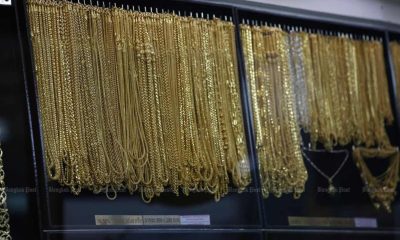
 Fashion2 years ago
Fashion2 years agoFed’s rate cut sends gold soaring past US$2,200 per ounce
-

 Fashion2 years ago
Fashion2 years agoGold prices in Thailand surge with ornaments at 37,350 baht
-
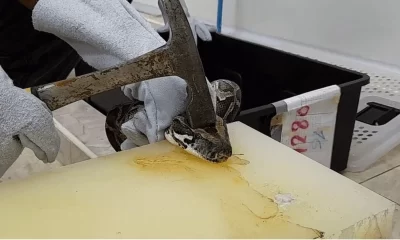
 Fashion2 years ago
Fashion2 years agoFashion brands linked to brutal slaughter of reptiles in Thailand (video)




